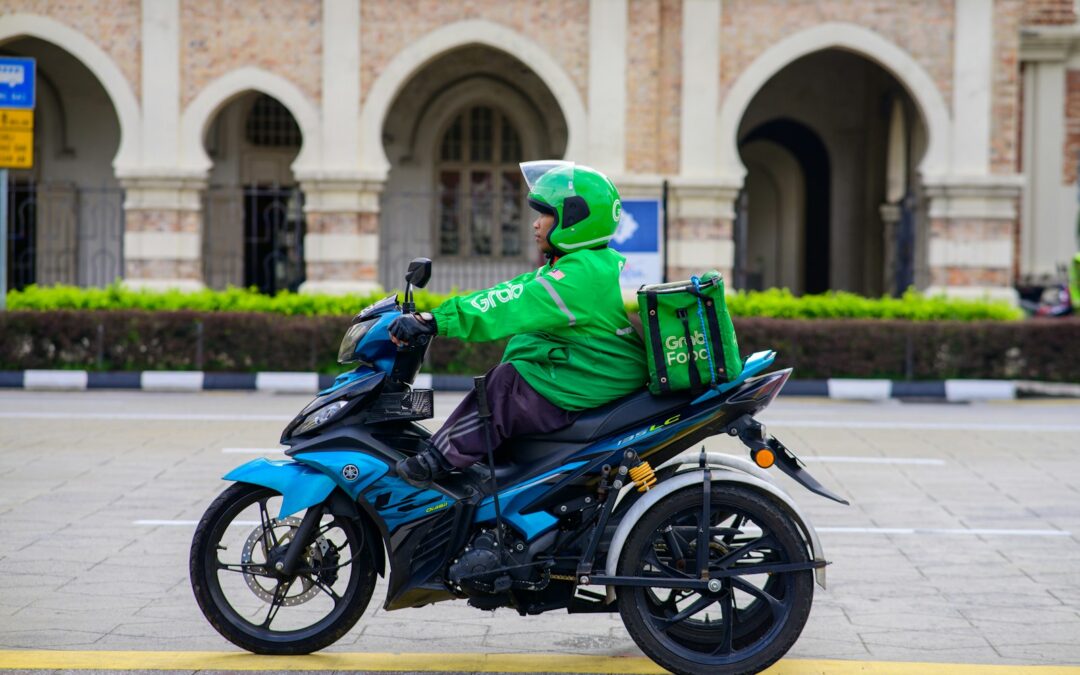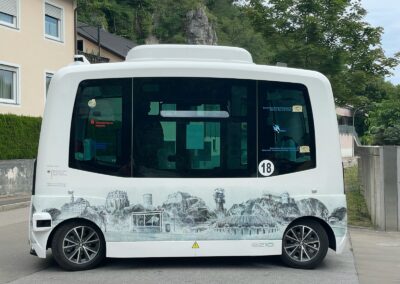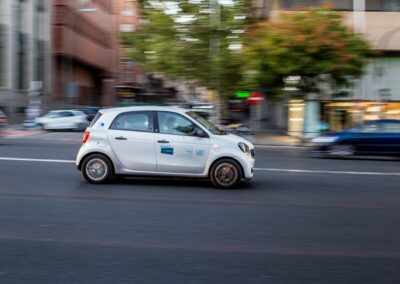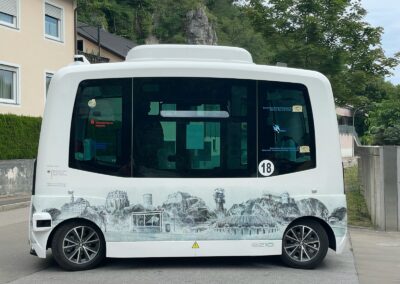How Digital Twins Revolutionize Autonomous Vehicles and Bike-Sharing Programs
Introduction to Digital Twins in Smart Mobility
Digital twins are rapidly emerging as a crucial technology in the evolution of smart mobility solutions, such as autonomous vehicles and bike-sharing programs. By creating detailed virtual replicas of physical assets, digital twins enable real-time simulation, analysis, and optimization of various systems. This capability is particularly transformative for smart mobility, where precision and adaptability are key to implementing effective and efficient solutions.
In regions like Saudi Arabia and the UAE, where urban development and technological innovation are integral to future growth, digital twins are playing a pivotal role. Cities such as Riyadh and Dubai are leading the way in integrating smart technologies into their transportation systems, enhancing the efficiency and effectiveness of urban mobility. The application of digital twins in this context not only supports the deployment of autonomous vehicles and bike-sharing programs but also aligns with broader goals of sustainable and intelligent city development.
Optimizing Autonomous Vehicles with Digital Twins
The integration of digital twins into autonomous vehicle systems offers significant advantages in optimizing performance and safety. By simulating real-world driving conditions in a virtual environment, digital twins allow for comprehensive testing and refinement of autonomous vehicle algorithms without the need for extensive physical trials. This approach accelerates the development process, reduces costs, and enhances the reliability of self-driving technologies.
Moreover, digital twins enable continuous monitoring and adjustment of autonomous vehicle operations. Real-time data from vehicles can be used to update their digital twins, which in turn can be analyzed to improve decision-making algorithms and overall vehicle performance. This iterative process ensures that autonomous vehicles adapt to changing road conditions, traffic patterns, and environmental factors, contributing to safer and more efficient transportation.
For executives and managers in Saudi Arabia and the UAE, leveraging digital twins for autonomous vehicles represents a strategic opportunity to advance smart mobility solutions and position their cities as leaders in technological innovation. By adopting this technology, organizations can enhance their transportation systems’ efficiency and reliability, contributing to the broader goals of smart city development.
Enhancing Bike-Sharing Programs with Digital Twins
Digital twins also offer valuable benefits for bike-sharing programs, a key component of urban smart mobility solutions. By creating virtual models of bike-sharing infrastructure, including stations, bikes, and usage patterns, digital twins can optimize the deployment and management of these systems. This includes predicting demand, managing bike distribution, and ensuring the maintenance of infrastructure.
For instance, digital twins can simulate various scenarios, such as increased demand during peak hours or special events, and provide insights into how to adjust bike distribution accordingly. This helps in minimizing wait times for users and ensuring that bikes are available where and when they are needed most. Additionally, digital twins can monitor the condition of bikes and stations, facilitating timely maintenance and reducing downtime.
In cities like Riyadh and Dubai, where smart mobility solutions are a priority, the use of digital twins in bike-sharing programs aligns with the vision of creating more sustainable and user-friendly urban environments. By optimizing these programs through digital twin technology, municipalities can enhance the overall efficiency and appeal of bike-sharing systems, encouraging greater adoption and contributing to environmental sustainability.
Strategic Advantages and Future Prospects
Strategic Benefits of Digital Twins in Smart Mobility
The strategic benefits of incorporating digital twins into smart mobility solutions are manifold. These include improved operational efficiency, enhanced user experiences, and better alignment with sustainability goals. For organizations in Saudi Arabia and the UAE, adopting digital twins represents a forward-thinking approach that supports their ambitions to become global leaders in smart city innovation.
By leveraging digital twins, organizations can achieve a higher level of precision in managing and optimizing their mobility systems. This not only leads to operational cost savings but also contributes to the creation of more reliable and user-centric transportation solutions. Additionally, digital twins enable better data-driven decision-making, allowing for proactive management of transportation networks and resources.
The ability to simulate and test various scenarios in a virtual environment also supports strategic planning and risk management. For executives and mid-level managers, this capability provides valuable insights into the potential impacts of different strategies and helps in making informed decisions that align with organizational goals.
Embracing Future Innovations with Digital Twins
As technology continues to advance, the applications of digital twins in smart mobility are expected to expand further. Future innovations may include more advanced simulation capabilities, integration with emerging technologies such as blockchain for secure data transactions, and enhanced AI-driven analytics for optimizing mobility solutions.
For business leaders in Saudi Arabia and the UAE, staying ahead of technological trends is crucial for maintaining a competitive edge. Embracing future innovations in digital twins will enable organizations to continuously improve their smart mobility solutions and ensure that their cities remain at the forefront of technological advancements.
In summary, digital twins represent a transformative technology with significant potential for enhancing smart mobility solutions. By leveraging this technology, organizations can optimize autonomous vehicles and bike-sharing programs, drive operational efficiency, and support the development of sustainable and intelligent urban environments.
—
#DigitalTwins #SmartMobility #AutonomousVehicles #BikeSharing #AI #Blockchain #TheMetaverse #ExecutiveCoaching #LeadershipSkills #ModernTechnology #ProjectManagement #SaudiArabia #UAE #Riyadh #Dubai























